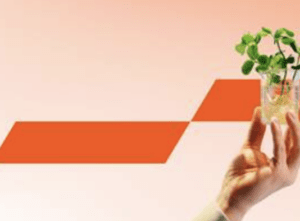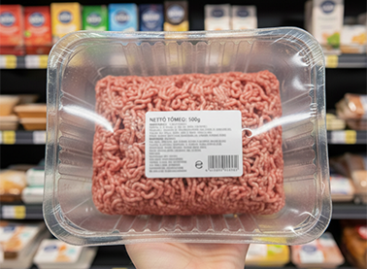Recycling packaging can save billions
Circular packaging models can significantly reduce the burden not only on the environment, but also on the economy. According to a recent study by PwC Hungary, noticeable environmental savings can be achieved even with a market penetration of 10%, while with a prevalence of 50-70%, up to 200-300 billion forints could be saved in the city center of Budapest over five years. Reusing packaging would not only be a solution to the global waste crisis, but would also bring numerous economic and social benefits.
 Global waste explosionAccording to the United Nations Environment Programme (UNEP), the world will generate 3.8 billion tonnes of household waste annually by 2050, almost double the 2.1 billion tonnes in 2023. In developed countries, per capita waste production exceeds 800 kg per year, and a significant portion of this waste – 25% – comes from packaging.
Global waste explosionAccording to the United Nations Environment Programme (UNEP), the world will generate 3.8 billion tonnes of household waste annually by 2050, almost double the 2.1 billion tonnes in 2023. In developed countries, per capita waste production exceeds 800 kg per year, and a significant portion of this waste – 25% – comes from packaging.
The costs of waste management currently amount to $360 billion per year globally, and this could increase to $640 billion by 2050. In addition to the financial burden, the environmental and health damage are also not negligible. It is clear that the current system is unsustainable.
“The capacity requirement for landfills could increase by more than 20 billion tons in the next 25 years, which is 411 times Germany’s waste production in 2022. This number alone indicates that the current system is unsustainable”
– pointed out Antal Kerekes, Partner at PwC Hungary, at the event presenting the research at PwC’s Budapest headquarters.
Materials and alternatives: regulations are also tightening
The study analyzes in detail the environmental impacts of various packaging materials – shocking data show the low level of recycling. Plastic packaging accounts for 40% of the global market, but only 9% is recycled, which is particularly worrying given the health risks of plastics. Paper has the advantage of a high recycling rate (over 80% in the EU), but it can only be kept in circulation for a limited time. Glass and aluminum are infinitely recyclable, but their production requires energy.
Reusable packaging is not only an environmental issue, but also a business opportunity: stores participating in the pilot projects presented in the study experienced an increase in the number of transactions of up to 40%.
“The EU’s new Packaging and Packaging Waste Regulation (PPWR) will impose increasingly strict requirements on retailers from 2026, requiring an increase in the proportion of reusable packaging and the mandatory introduction of refill stations. The sustainable packaging market could reach $400 billion by 2034, which will be 25% of the total market”
– emphasized Anita Sávoly-Hatta, responsible for ESG reporting at PwC Hungary partner.
Hungarian consumers would also go green
According to a representative survey conducted by PwC on a sample of 1,800 people, 88% of the Hungarian population considers plastic waste management to be a critical or important problem, and more than half of consumers would be willing to pay 5-15% more for sustainable products. At the same time, alternative options are lacking or not well-known: only 56% of consumers buy refillable, reusable packaging products, and 60% of those who do not buy such products have simply not encountered this option. The most well-known solution among Hungarian consumers (37%) is recycling.
Related news
PwC Consumer Loyalty Outlook: Loyalty Enters a New Era
🎧 Hallgasd a cikket: Lejátszás Szünet Folytatás Leállítás Nyelv: Auto…
Read more >Related news
How does the forint exchange rate affect consumer prices?
🎧 Hallgasd a cikket: Lejátszás Szünet Folytatás Leállítás Nyelv: Auto…
Read more >Two million people have already voted, so 57 million forints will be given to locals in 125 settlements, courtesy of Tesco
🎧 Hallgasd a cikket: Lejátszás Szünet Folytatás Leállítás Nyelv: Auto…
Read more >








